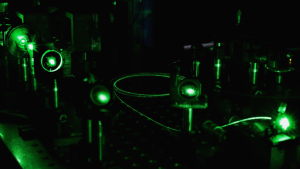PFAs, the per- and polyfluorinated alkyl substances, are now omnipresent: their stability, such as their simultaneous water and fat-repellent properties, ensure broad use in industry as well as in the household. However, many PFAs are also poisonous and accumulate over the food chain; They can be proven globally in the environment. The longevity of the so -called eternal dragon chemicals is therefore increasingly becoming a problem. Brittany Trang from Northwestern University and her team show in a study in "Science" that there could soon be a simple way to disassemble these substances without having to use a lot of energy.
The PFAS are long-chain organic compounds whose hydrogen atoms have been replaced by fluorine atoms and whose bond is considered to be so strong that they can only be separated again at great expense. The approach of Trang and Co, on the other hand, ensures that at least PFCA (perfluorocarboxylic acids, a subclass of PFAS) decompose to carbon-containing compounds and fluoride ions even under relatively moderate conditions in the laboratory.
The working group focused on a group of loaded oxygen atoms at the end of the examined PFCA molecules and activated this group. To do this, it heated the PFAs in dimethyl sulfoxide - a previously unusual solvent for the destruction of PFAs - with sodium hydroxide, a common reagent, which split off the head group. This started a chain reaction, at the end of which the fluoron atoms were solved out of the connection and fluorides formed, which are relatively easy to handle. The process temperatures were 80 to 120 degrees Celsius and thus significantly lower than in other procedures in which the fabrics were heated to 400 degrees Celsius and more.
Using computer simulations, the team was able to decipher the sequence of the complex chemical reactions and ultimately confirm that the by-products were relatively harmless. As soon as the molecules were destabilized, almost all fluorine atoms were removed from them.
In addition to the PFAC, the researchers successfully tested their processes in newer, branched PFAs, which were supposed to replace conventional members of the fabric class, but which have also been widespread in the environment. Overall, they have only tried the procedure on ten different PFAs; However, there are a total of 12,000 different substances of this fabric class. So it still has to be tested whether this type of disassembly also works for the big rest of the PFAs that not all of the newly discovered Achilles' heel. A first step towards the end of the eternal slide chemicals seems to be done.



















